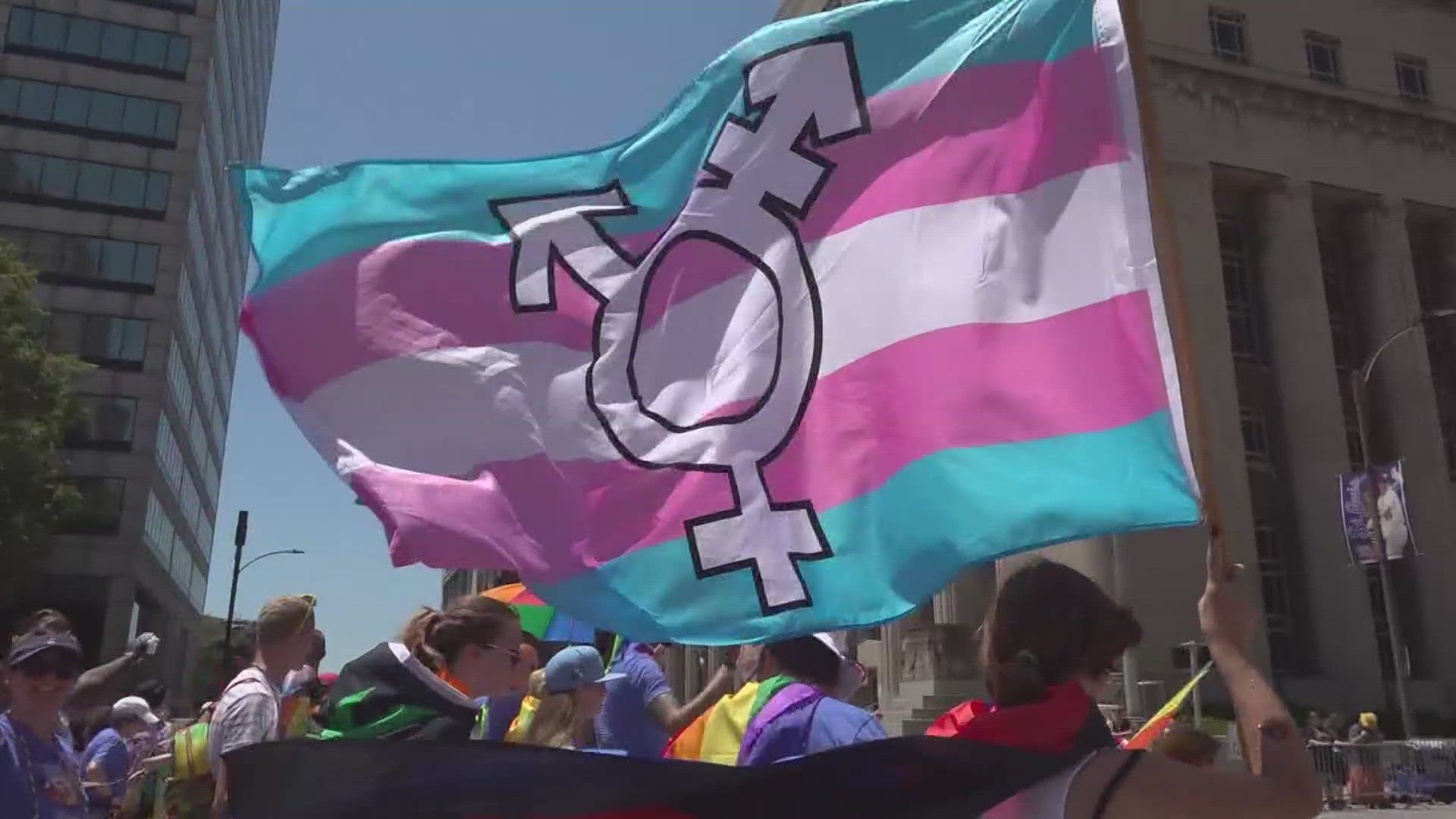COLE COUNTY, Missouri —
A Missouri Circuit Court has upheld the state's ban on gender-affirming care for transgender youth, with Judge Craig Carter citing "an almost total lack of consensus" on the medical ethics of gender transition treatments and procedures.
The judge said his view of the courtroom was sometimes obstructed by heaping piles of witness testimony and evidence that were really better suited for legislators or medical experts to sort out.
“The court reporter’s transcript in this case is several thousand pages,” Carter wrote, adding, “...attorneys provided the Court with so many binders of evidentiary documents that were piled so high on the bench that the Court’s vision was at times obscured.”
Courts are "not equipped to choose" between competing medical opinions, Carter said, declaring: "That is a job for the legislature."
The ruling in Cole County maintains the ‘Save Adolescents From Experimentation (SAFE) Act,’ which restricts hormone therapy, puberty blockers, and surgical interventions for minors. Lambda Legal and the ACLU of Missouri immediately announced plans to appeal, characterizing the decision as "a troubling acceptance of discrimination."
“Despite heartfelt testimony from parents of transgender youth, transgender adults who’ve benefited from this care at various stages of life, a transgender minor, and some of Missouri’s most dedicated health care providers, the state has prioritized politics over the well-being of its people,” the joint statement said. “This ruling sends a chilling message that, for some, compassion and equal access to health care are still out of reach."
Missouri Attorney General Andrew Bailey celebrated the ruling on social media. "The Court has left Missouri's law banning child mutilation in place, a resounding VICTORY for my team," he wrote, earning a "Well done" reply from Elon Musk.
Rep. Brad Hudson (R-Stone County), one of the law's architects, praised the outcome and said legislators wrote the proposal to withstand judicial scrutiny. "We knew that there was a good chance this legislation would be challenged. And so we were very careful in the way that we crafted it to do everything that we could to make sure that it would be able to withstand a court challenge," Hudson said.
The court's decision highlighted significant medical uncertainties in a fluid landscape that has evolved dramatically over the last decade or two. Judge Carter cited older research from the Endocrine Society indicating that “approximately 85% of gender-dysphoria-diagnosed prepubertal children did not remain gender incongruent later in life.”
“The statistics show that an overwhelming percentage of adolescents who complain of gender dysphoria will eventually and naturally grow out of the symptoms,” Carter wrote.
The ruling allows psychotherapy and mental health counseling to continue undeterred. The ban does not apply to adults seeking gender-affirming care or to rare medical conditions involving chromosomal abnormalities.
Hudson said several conservative legislators in Jefferson City expressed a desire to ban transgender medical care at all ages, but that they ultimately settled on an age limit at 18 years old.
"When you talk about these drugs and surgeries that would forever alter their bodies, they just haven't cognitively developed to the point where they can make these decisions,” he said.
The court also upheld the state's ban on using tax dollars for Medicaid patients seeking gender transition care.
The judge presiding over the case was first elected to the bench in Wright County, which delivered Donald Trump a higher margin of victory than any other Missouri county in the November election. The ACLU suggested the ruling overlooked thousands of pages of witness testimony — an argument that could become central to their pending appeal.
The legal battle did not include any judicial review of reproductive health-related provisions in Amendment 3, which 51.6% of Missouri voters just approved at the ballot box.

